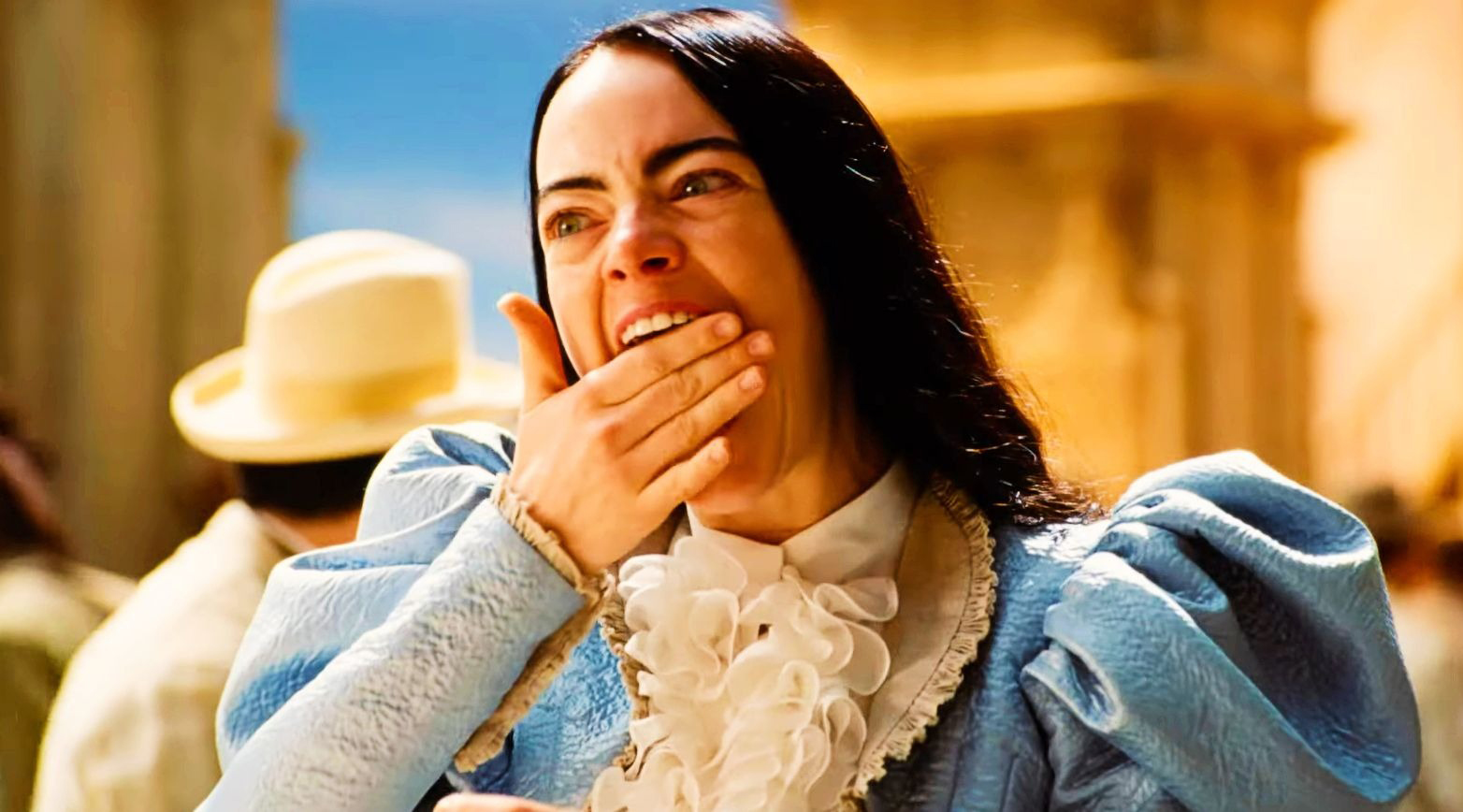Yorgos Lanthimos directs Emma Stone in his eighth film, Poor Things, an adaptation of Alasdair Gray’s 1992 novel, with Tony McNamara writing the screenplay. Stone also serves as a producer on the Searchlight Pictures production. Taking place in Victorian London, the film opens with an expectant mother, Bella Baxter (Stone), committing suicide. We then meet medical student Max McCandles (Ramy Youssef), who has become an assistant to surgeon Dr. Godwin Baxter (Willem Dafoe). One day, while exploring the mansion, Max stumbles upon Bella and is immediately smitten with her. Later, Baxter tells Max that he brought Bella back to life by replacing her brain with that of her living baby, causing her to have the mind of an infant. Bella finds herself at a crossroads, unsure of who she is and where she wants to go. However, fate intervenes when she meets the charismatic but reckless lawyer, Duncan Wedderburn (Mark Ruffalo).
Despite his wild ways, Bella is drawn to him and is soon swept up in his world of hedonistic pleasure and self-indulgence. Together, they embark on an odyssey of self-discovery, exploring their desires and passions in ways they never thought possible. As they navigate this new and exciting world, Bella begins questioning everything she knows about herself and wonders if Duncan might be the key to unlocking her true potential. Yorgos Lanthimos is one of the filmmakers you either like or don’t. That said, Poor Things is one of those films that fits his style perfectly. One of the things that will instantly get the attention of viewers is the graphic sexual content in the film involving Stone. The actress portrays the character as having no shame when she discovers the joys of her body and physical intimacy. Surprisingly, the studio is downplaying Stone’s nude scene, which would surely be a selling point for some.
A film like this will make or break on the strength of its lead female character, and Stone is more than up to the task, taking audiences on a wave of emotions throughout the film’s nearly two 1/2-hour runtime. The movie is structured into distinct chapters, each focusing on the various locations visited by the woman with a childlike mind. In each of these chapters, she encounters critical aspects of human existence. These include her initial understanding of her own body, her first experiences with social relationships, the disillusionment stemming from social class disparities, and her exploration of work and sexuality.
While the male cast members, such as Ruffalo and Dafoe, do a commendable job of delivering their usual quips, some viewers may have reservations about Jerrod Carmichael’s portrayal of Harry Astley and his brief arc in the movie. One of the greatest strengths of Poor Things is its ability to strike a perfect balance between an absolutist and investigative approach to understanding humanity. The director achieves this through the skillful use of style, which seamlessly integrates organic variations and elicits laughter, highlighting the talent of both Lanthimos and Stone.
Throughout the narrative, Bella undergoes personal growth in different locations and situations, yet the film always feels cohesive as these elements flow together harmoniously. While Poor Things isn’t mainstream, fans of the director and Stone should give it a view.
Final Grade: B
Poor Things opens wide this Friday, December 22nd.




